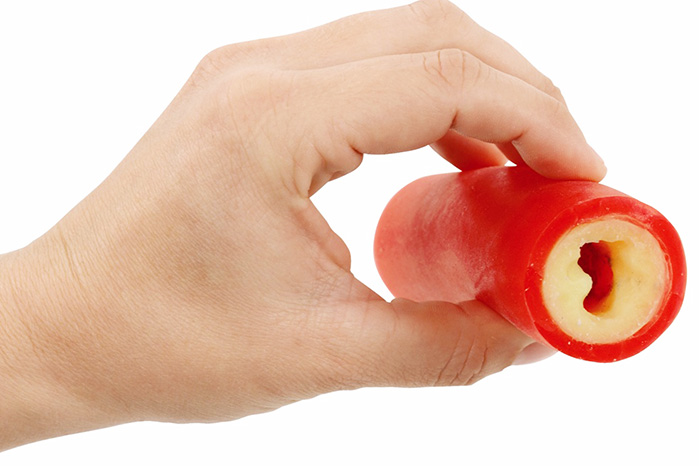People know I support intermittent fasting. Truth be told, in the past, even after experimenting with a lot of healthy diets, I couldn’t develop muscles if I didn’t get fat. This was my experience before I tried intermittent fasting.
Now that I’ve been known to intermittently fast, people excited at the notion of fasting have come to me for advice. Many of whom are dead set to fast and feast.
However, one should be careful since the plan could backfire big time. Come up with real goals and stay away from the wrong practices newcomers make.
Below you can see the mistakes you might be making. I’ve also included recommendations to help you improve.
- You’re still eating unhealthy food.
Most of the emails I get complain about the struggle with losing fat.
I ask them about their nutrition.
They almost always tell me they their nutrition could be better.
Nowadays, I wolf down food like Goku, and keep building my muscles with Chaos Nutrition concepts. But after everything’s been said and done, nothing can be done if you eat garbage. You need to know what kind of food to prepare.
Sticking to a healthy diet is quite the chore. As you can see, people who have problems with their bodies don’t have a healthy diet. They go for junk food, processed food, or drinks with a truckload of sugar.
If your breakfast is cocoa with the added sugar and milk and extra-syrup pancakes, you’ll need to train extra hard to get rid of it.
For those who are new to intermittent fasting, emphasize meat and fish that are as much as possible, unprocessed, and fresh vegetables.
I’m not saying you should never eat anything processed again because it can cause instant death. I used to eat bread, but now white rice is part of my diet. You see, as you go back through food processing, the food becomes more and more FUBAR. It goes through a lot of processing and in the end, it hardly resembles what it once was.
Now, when talking about drinks, if you consume any drink aside from water, or non-sugared coffee or tea, then don’t complain that you have a hard time losing fat. Don’t look for techniques that aren’t basic.
- You’re not keeping busy.
After you hear a secret from a friend, the tendency is you want to share it to the world. The same thing applies to when you have food in mind. You want to chow down anything within reach that resembles food.
When I started fasting for twenty-four hours, I went to sleep, did some golfing, worked out, and trained at batting. It was around seven in the evening when I started thinking about eating something. I drank tea and watched The Office. It kept me distracted. When it was time to sleep, food never crossed my mind.
When you hurry yourself to intermittently fast, you have to stay busy. Plan your day with activities that will keep you away from food. It’s a way to keep you from temptation. Try to avoid being with friends with food. Don’t even look at the office pantry and the free pastries lying there.
- You’re overusing stimulants.
People who fast intermittently often have coffee as their entire morning meal. Drinking one or two cups might aid in keeping you from being hungry. Coffee might also be good for increasing one’s metabolic rate in burning fat.
It’s a common occurrence that the morning becomes a caffeine feast. A couple of cups are okay. But don’t think of coffee as food. It isn’t. On a personal note, I believe it to be a bad idea to consume coffee after twelve noon.
Coffee is part of everyone’s diet, whether good or bad. Don’t beat yourself up if you love it. But don’t overuse it.
- You’re putting too much pressure on yourself.
Nowadays, I eat a single meal a day while staying true to the concepts of Chaos Nutrition. But it wasn’t always this way. I had to get used to being hungry, and it didn’t happen overnight. It took me a while. Honestly, I wasn’t sure if I would ever fast intermittently if I never broke my foot and survived without breakfast.
Take it easy when you start out. If you eat a lot of unhealthy food, and suddenly make a move to a single meal a day, that’s a pretty big change to take in. I recommend a single meal a day to people who only want to eat a single meal a day. Going from where I was to where I am now in intermittent fasting took me years. I started with six meals a day in ’06, then reduced to four in the summer of 2010. By autumn of that year, I was eating three to four times with an additional two times for snacking. I broke my foot during the winter of the following year, and somehow reduced my food intake to two to three a day. Eventually, it was down to two, and on occasion one a day. At the end of 2012, I had gotten used to a single meal a day.
It took years, but it was worth it.
Now, I have a couple of recommendations for you if you want to get into intermittent fasting.
- Try waking up late so you won’t be able to prepare your morning meal. Eat your first meal at noontime.
- Try a 24-hour fast once a week. Wake up late. And forget to prepare lunch as well. Time the fast sometime in the afternoon so you can break it the following day at the same time. That way you never really finish a day without eating a meal.
- You’re always afraid of being hungry.
Being hungry is fine. It happens to everyone everywhere. Being hungry won’t let your muscles perish. To fast for sixteen to twenty hours won’t be fatal. Research even reveals that fasting can sometimes make one healthier.
Fasting for a day is safe for your body. It’s not eating for long periods of time that you have to worry about.
I am now more fit than ever, and I only have a single meal a day. I haven’t underperformed, which shouldn’t come as a surprise when you consider Ramadan athletes. I even tried fasting after training to experiment on myself.
Hunger shouldn’t be feared.
- You’re thinking that more is better.
To fast intermittently is good. So let’s try it for forty eight hours. Then seventy-two hours.
It doesn’t work that way. Brad Pilon mentions this in Eat Stop Eat. Fasting after twenty hours is no longer beneficial.
Although it is still subject to circumstance. If you ate a lot before fasting, then fasting might be more than twenty hours. But if you regularly fast for more than twenty hours, try changing your habits. To fast isn’t the same as starving yourself.
- You’re staying away from the disorder.
Fasting intermittently depends on what is called negative feedback loops, a term coined by Ori Hofmekler, author of Maximum Muscle, Minimum Fat.
These loops are disorder. They are chaos. If you make what you eat more unpredictable, the more effective it becomes.
Another way of looking at it is seeing how its being effective stems from short term fasting. You have to accept this and hold it close to you.
You should understand and accept that short term fasting has amazing possibilities. It can hold a lot of power. It can help one reach his or her full potential, just like working out. To fast is to put stress on the body. It is something the body must adjust to. And when it does, the body becomes stronger.
- You’re always looking at the time.
Relax. Don’t stress yourself over the time left in your fasting period. A single minute won’t destroy all that you’ve worked for. This is an irony since most of the people who fast intermittently give attention to the relaxed life you can enjoy, and yet they still manage to make it all about the minutes until fasting is done.
Most of the time, I only have a single meal a day, which is dinner. Sometimes, it’s in the middle of the afternoon. Sometimes it’s around eight in the evening. It’s something I never fuss about. When I’m okay to have the meal, then that’s when I have the meal. I have the meal when it’s the best time for me to have the meal at my convenience. When I really get hungry, and it isn’t time yet, I chew on raw veggies. I’m not stressed. I’m free. If I find myself in New York, dinner then might have a sundae with waffles, or an ice cream sandwich with donuts at four in the morning. That makes me happy.
- You’re putting too much emphasis on the results rather than the process.
One of the most important things people should remember when going through a complicated dynamic system is that the entire system is more important than the end result.
You can do all you can to make sense of each part of the system, but you won’t be able to decipher their purpose if they’re all put together.
Many people emphasize these individual parts. Many people try to figure out if a small amount of sugar in their drink will destroy everything. Many people want to know how big an impact a single minute can make.
But most of the time, something more important that requires your attention comes up, making that small amount of sugar the least of your worries.
Important concerns can range from what kind of food you’ve prepared for yourself, your training regimen, the amount of food, protein, vegetables and fat you’re consuming.
I suggest that you dwell on how you’ll go about underfeeding (or feeding) yourself. Think of how much you’ll feed or not feed yourself. If you feed yourself a lot, then it means you’ll have more muscle. If you underfeed yourself, then it means you’ll take in less fat. Think of how often you’ll be fasting. Will it be every day? Will it be every week?
Don’t spend too much time on the individual parts. Remember, the more trivial the part, the less it matters.
https://www.healthybuilderz.com//anthonymychal.com/2013/05/intermittent-fasting-mistakes/








